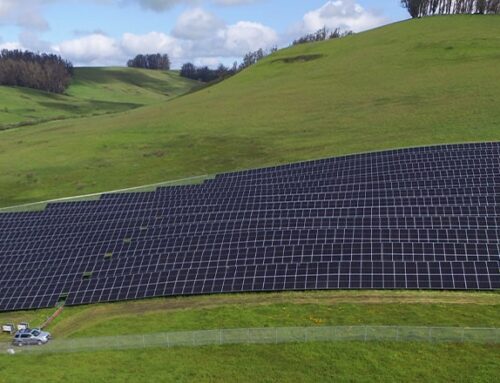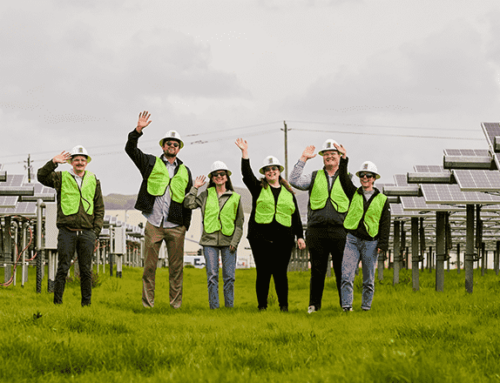From running our refrigerators to powering our lights, electricity is essential for our daily activities. When the power goes off unexpectedly or as the result of a planned PG&E public safety power shutoff (PSPS) event, the impacts on homes and businesses can be profound. MCE is working with our customers and community partners to help reduce the effects of a power outage through our new Energy Storage Program, providing much-needed services to our most vulnerable populations.
Keep Your Power on During a Grid Outage
MCE created a $6 million resiliency fund to help alleviate grid outages that threaten our community’s safety, health, and welfare, and disproportionately affect vulnerable populations. In addition, the Marin Community Foundation awarded MCE a two-year $750,000 grant through the Buck Family Fund to install solar plus storage at nonprofit, critical facilities, and affordable multifamily properties in Marin County. MCE is investing in advanced clean energy technologies like battery storage to keep power on during outages, and to minimize the use of carbon-emitting generators and fossil fuel technologies.
Reduce Your Energy Bill
An energy storage system can be beneficial even when there isn’t a power outage. You can use stored energy to provide power to your home or business in the evening peak hours (typically 4−9 p.m.) when rates are higher. By using your stored energy instead of pulling energy off the grid, you can avoid higher rates and reduce your energy bill.
What Is MCE’s Energy Storage Program?
MCE’S Energy Storage Program offers battery storage to provide energy when your power goes out. This program helps to reduce your energy bill while also lowering your electricity-related carbon footprint. You also can use this stored energy at your business, home, or facility when energy from the grid is more expensive.
At a community level, having more energy storage helps efficiently manage demand and supply for renewable energy resources like solar and wind, and helps avoid the need for additional polluting resources, such as natural gas, to supply peak day energy needs for our electric grid.
Who Is Eligible to Participate?
Any MCE customer with existing solar panels, or who plans to install solar panels, may participate in MCE’s Energy Storage Program. The program prioritizes our most vulnerable customers, in line with the State’s Self-Generation Incentive Program (SGIP) eligibility requirements. Residential and non-residential customers who have the greatest resiliency needs are prioritized, including those who have experienced two or more PSPS events, or who are in a Tier 2 or 3 High Fire-Threat District (HFTD).
Additional priority will go to:
- Residential customers who have a life-threatening medical need, rely on electric pump wells for domestic water use, live in low-income housing, or are in state-designated disadvantaged communities
- Non-residential critical facilities that provide essential services during outages and serve customers located in disadvantaged or low-income communities
What Does It Mean to Be Energy Resilient?
Energy resiliency is about ensuring a reliable and regular supply of energy and having contingency measures in place for a power failure. Being energy resilient allows you to withstand disruptions in power supply, keeping necessary electricity flowing even when the power grid is out. Generally, this means ensuring that you have backup power in the form of a battery system or a gas-powered generator. MCE is working with customers to ensure access to cleaner backup power resources, helping you keep the lights on without fossil fuel resources that can impact the air quality in your home or business.
Interested in learning more? Visit our Energy Resilience page to find out what programs and incentives you might qualify for and learn how to apply. You can also go directly to the Self-Generation Incentive Program page to learn more about your options.






